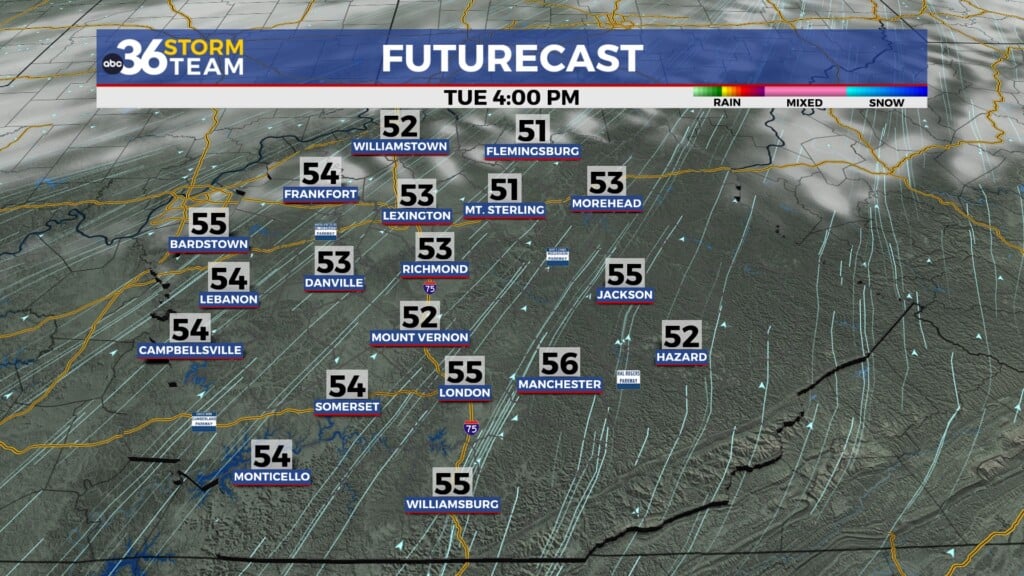State lawmakers take two approaches to car tag tax issue
Legislators look for ways to protect taxpayers from 40% jump in tag costs.
FRANKFORT, Ky. (WTVQ) – State lawmakers are taking dual, almost duplicative approaches to the same issue. At some point by the end of the session, the duplication may have worked itself out into one solutions to help save taxpayers money on an issue that’s been a growing result of the pandemic.
Members of the House Appropriations and Revenue Committee voted unanimously Tuesday to approve legislation sponsored by Representative Sal Santoro that would offer relief from skyrocketing motor vehicle tax rates in Kentucky. The measure, HB 6, would require Property Value Assessors (PVAs) under the Kentucky Department of Revenue to use the average trade-in value to assess motor vehicles for tax purposes, instead of a higher “clean” trade-in value rate currently in use.
“When we’re talking about a standard rate, that rate should reflect the average vehicle value across the board,” Santoro said. “The reality is the majority of vehicle owners are paying rates that are much higher than their vehicle is actually worth as a result of the current standard of clean trade-in.”
In some cases, taxes are going up 40 percent.
Existing Kentucky law requires that motor vehicles be taxed according to a standard value, which the statute defines as the “average trade-in value.” However, in 2009 under Governor Steve Beshear, the Department of Revenue adopted a policy defining “average trade-in” to mean a higher valuation of “clean trade-in.” HB 6 would require the average trade-in value to be used at the standard beginning in January of 2023.
“Current law already has it that average trade-in should be the standard,” Santoro said. “The executive branch made a decision of their own volition to begin using the higher clean trade-in rate back in 2009. This bill would simply ensure that the standard required by law is followed going forward.”
Although the measure started in 2009, it also was followed by Republican Gov. Matt Bevin.
According to a memorandum published by the Office of Property Valuation, 2022 motor vehicle valuation has increased an unprecedented 40 percent compared to 2021. HB 6 would apply retroactively to January 1, 2022, exempting the portion of motor vehicle tax calculated based on this increased rate and requiring refunds to be issued to those who have paid these rates.
“This has been a top priority issue this session,” Santoro added. “I look forward to getting this measure passed and getting Kentuckians the relief they need.”
During Tuesday’s committee hearing, state Rep. Jason Nemes, a Middletown Republican, praised Santoro for his efforts on the bill and his message.
“We’ve got to make sure we protect the taxpayers here, this is something that was coming and it’s not their fault and we need to make sure to protect them,” Nemes said, repeating words Santoro has said often. “So if there’s an issue I’ve heard more about this session, I don’t remember it. This is the number one issue.”
Primary co-sponsor Representative Patrick Flannery was the bill’s original sponsor when it was filed earlier this session. “I modeled this legislation after one of the first bills I ever filed as a legislator. I saw a need from my constituents to correct this issue then, during the 2021 session, but the issue has been even more inflated by the 40% tax hike. I am proud to co-sponsor this important and long overdue measure along with Rep. Santoro.”
HB 6 moves to the House floor for consideration.
Meanwhile, on the same issue, state Sen. Donald Douglas, a Republican from Nicholasville who also is a doctor, has introduced Senate Joint Resolution 99 (SJR 99) which will direct Gov. Andy Beshear to order the Kentucky Department of Revenue to shield Kentucky taxpayers from pandemic-inflated valuations of automobiles.
COVID-19 has negatively impacted automobile manufacturing, disrupting the supply chain and increasing used vehicle values. Automobile taxes in Kentucky are a percentage of a vehicle’s assessed value. The DOR has reported motor vehicle valuations have increased as much as 40 percent compared to the previous year. J.D. Power and other sources forecast used vehicle values will begin their descent to more normal levels by late 2022 or early 2023.
A memorandum sent from DOR earlier this year spurred significant attention from the public and lawmakers. SJR 99 is the latest measure introduced to provide peace of mind to Kentucky taxpayers facing skyrocketing motor vehicle taxes amid the already challenging times brought on by COVID-19 and mitigation efforts from the government.
“There may be no policy issue generating more attention from the general public this session than news of higher vehicle property taxes,” Douglas said. “In my observation, the simplest resolution to these higher taxes rests in the hands of the Governor’s administration.”
Douglas serves on the Senate Appropriations and Revenue Committee, which handles matters on appropriations of taxpayer dollars and levying state and local taxes. SJR 99 has been assigned to the A&R Committee. It will be presented and considered during the committee meeting Wednesday.
“We need to act to help our people, and I’m disappointed action has not been taken by the administration to exempt our constituents from this tax burden,” Douglas said. “I believe strongly in working together to better our communities, and this is an issue residents care deeply about. We need to make this right.”
Joint resolutions of the Kentucky General Assembly do not modify state statutes but do carry the force of law.
Douglas proposed SJR 99 after discussion with fellow lawmakers and reviewing Kentucky Revised Statute 132.485. The statute permits “deviation from the standard value” if information is available to warrant it.
“The rise in the motor vehicle tax is a significant deviation from the norm because of the unprecedented times we find ourselves in,” Douglas said. “This part of the law is significant. If a once-in-a-lifetime pandemic does not warrant deviation here, nothing ever will.”
SJR 99 will require DOR to use a motor vehicle’s 2021 assessed value as the base for taxes in 2022 and 2023. This protects Kentucky vehicle owners from artificially inflated motor vehicle valuations resulting in an increased motor vehicle property tax. Additionally, SJR 99 is retroactive for taxpayers who have already paid their motor vehicle tax. Those residents will be provided an automatic refund.
“I’ve introduced Senate Bill 75 and have been in discussion with a lot of my colleagues to find the appropriate remedy,” Sen. Jimmy Higdon (R-Lebanon) said. “Dr. Douglas made a great find in state law, and he has been one of the most engaged and committed to finding the best solution.”
Higdon serves as chair of the Senate Transportation Committee.
“I think SJR 99 may be the best prescription, so I appreciate Dr. Douglas introduced it,” Higdon said. “It will have my support, and I trust the support of a lot of other lawmakers.”
If passed by both chambers of the Kentucky General Assembly, the resolution will be delivered to the governor for consideration. The governor will have the option of signing it into law, allowing it to become law without his signature or vetoing it. In the case of a veto, lawmakers can consider a veto override. The resolution carries an emergency clause and would immediately be effective upon filing with the Kentucky Secretary of State.




Leave a Reply